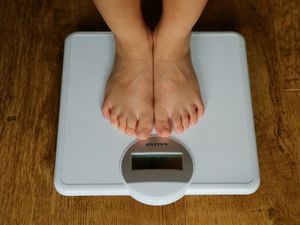Hospital prosthetics team begin making safety visors in coronavirus battle
Prosthetics staff in Staffordshire have begun manufacturing their own safety visors to keep staff safe in the fight against coronavirus.
The visors will form part of vital Personal Protective Equipment (PPE) worn by clinical staff when caring for patients with Covid-19.
The prosthetics team at Royal Stoke have designed the visors and are using 3D printers to produce them on-site.
Paul Griffiths, head of prosthetics, said: “We are now in full production and are printing 3D and foam-backed versions.
"Our aim is to have produced 1,000 units in a combination of both types by Friday.
"This is a completely new area of work for the team and we have moved really quickly to source materials to be able to make the product.
"What we are aiming for now is to make the visors suitable for re-use to avoid waste.”
The visors have a simple but practical design consisting of a plastic mould headband and acetate screen.
The team have been supported by local companies Tri-Tech3D in Stoke-on-Trent and Quadpack in Leek, who have heavily discounted supply costs and are assisting in production.
The hospital team hope to produce about 1,000 visors per week once fully operational.
Paul Bytheway, chief operating officer, said: “This essential PPE made by our prosthetics team will help to keep our staff and patients safe, and that’s the most important thing we can do. It’s fantastic that at UHNM the team have used their skill, technology and expertise to support their colleagues. We’re really excited about having access to such effective measures in-house.”
Michelle Rhodes, chief nurse, said: “Eye protection is really important because it’s used to protect people from the risk of contamination when someone coughs or sneezes. We’re really thrilled that our talented prosthetics team have been able to work in such an adaptive way and pull together this new product so quickly. This will really help to keep our staff and patients as safe as they possibly can be.”




